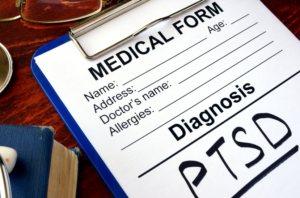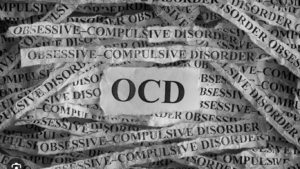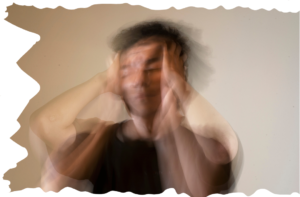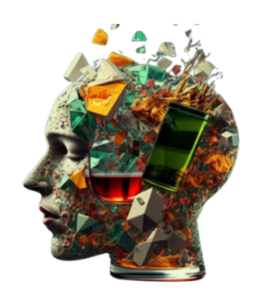What is Mental Health?
Mental health refers to our emotional, psychological, and social well-being. It affects how we think, feel, and act, as well as how we handle stress and connect with others. Everyone experiences ups and downs, but if you often feel withdrawn, have low energy, or lose interest in things you once loved, it may be a sign of a bigger issue. It’s not always easy to spot the difference between typical mood swings and a more serious mental health concern. When these feelings become regular, they could lead to a development of mental health disorders.
Mental health disorders can arise from a complex interplay of factors, including genetic predispositions, daily life stressors and traumatic experiences. Understanding the root causes of mental health disorders is crucial for accurate diagnosis and treatment.
Here are some Mental Health disorders explained:
Anxiety Disorders
 Anxiety disorders encompass a range of conditions characterised by excessive fear or worry. Common types include generalized anxiety disorder, panic disorder, and social anxiety disorder. Individuals may experience symptoms such as restlessness, rapid heartbeat, and difficulty concentrating. These disorders can interfere with daily activities and often lead to avoidance behaviours.
Anxiety disorders encompass a range of conditions characterised by excessive fear or worry. Common types include generalized anxiety disorder, panic disorder, and social anxiety disorder. Individuals may experience symptoms such as restlessness, rapid heartbeat, and difficulty concentrating. These disorders can interfere with daily activities and often lead to avoidance behaviours.
Depression
 Depression is a mood disorder marked by persistent feelings of sadness, hopelessness, and a loss of interest in previously enjoyed activities. Symptoms can include changes in appetite, sleep disturbances, fatigue, and difficulty concentrating. Depression can significantly impact one’s quality of life and may require professional intervention for effective management.
Depression is a mood disorder marked by persistent feelings of sadness, hopelessness, and a loss of interest in previously enjoyed activities. Symptoms can include changes in appetite, sleep disturbances, fatigue, and difficulty concentrating. Depression can significantly impact one’s quality of life and may require professional intervention for effective management.
Bipolar Disorder
 Bipolar disorder is characterized by extreme mood swings that include emotional highs (mania or hypomania) and lows (depression). During manic phases, individuals may experience increased energy, reduced need for sleep, and impulsive behaviour. Conversely, depressive episodes can lead to feelings of sadness and lethargy. Managing bipolar disorder often involves a combination of medication and therapy.
Bipolar disorder is characterized by extreme mood swings that include emotional highs (mania or hypomania) and lows (depression). During manic phases, individuals may experience increased energy, reduced need for sleep, and impulsive behaviour. Conversely, depressive episodes can lead to feelings of sadness and lethargy. Managing bipolar disorder often involves a combination of medication and therapy.
Post-Traumatic Stress Disorder (PTSD)
 PTSD is a mental health condition triggered by experiencing or witnessing a traumatic event. Symptoms may include flashbacks, nightmares, severe anxiety, and uncontrollable thoughts about the event. Individuals with PTSD may avoid situations that remind them of the trauma, hindering their daily lives. Treatment often involves therapy and support.
PTSD is a mental health condition triggered by experiencing or witnessing a traumatic event. Symptoms may include flashbacks, nightmares, severe anxiety, and uncontrollable thoughts about the event. Individuals with PTSD may avoid situations that remind them of the trauma, hindering their daily lives. Treatment often involves therapy and support.
Obsessive-Compulsive Disorder (OCD)
 OCD is characterised by unwanted, intrusive thoughts (obsessions) and repetitive behaviours or mental acts (compulsions) that individuals feel driven to perform. These compulsions are often aimed at reducing anxiety related to the obsessions. The disorder can significantly disrupt daily functioning, but effective treatments are available, including cognitive-behavioural therapy and medication.
OCD is characterised by unwanted, intrusive thoughts (obsessions) and repetitive behaviours or mental acts (compulsions) that individuals feel driven to perform. These compulsions are often aimed at reducing anxiety related to the obsessions. The disorder can significantly disrupt daily functioning, but effective treatments are available, including cognitive-behavioural therapy and medication.
Schizophrenia
 Schizophrenia is a severe mental disorder that affects how a person thinks, feels, and behaves. It may involve hallucinations, delusions, and disorganized thinking, making it challenging for individuals to distinguish between reality and their distorted perceptions. Early intervention and ongoing treatment are crucial for managing symptoms and improving quality of life.
Schizophrenia is a severe mental disorder that affects how a person thinks, feels, and behaves. It may involve hallucinations, delusions, and disorganized thinking, making it challenging for individuals to distinguish between reality and their distorted perceptions. Early intervention and ongoing treatment are crucial for managing symptoms and improving quality of life.
Psychosis
 Psychosis is a mental health condition characterised by a disconnection from reality, often manifesting through symptoms such as hallucinations (seeing or hearing things that are not present) and delusions (strongly held false beliefs). Individuals experiencing psychosis may have difficulty distinguishing between what is real and what is not, leading to significant disruptions in their thoughts, feelings, and behaviours. Psychosis can occur as part of various mental health disorders, including schizophrenia, bipolar disorder, and severe depression, and can also be triggered by substance use, trauma, or medical conditions. Treatment typically involves a combination of medication, psychotherapy, and support to help manage symptoms and improve daily functioning. Early intervention is crucial for better outcomes.
Psychosis is a mental health condition characterised by a disconnection from reality, often manifesting through symptoms such as hallucinations (seeing or hearing things that are not present) and delusions (strongly held false beliefs). Individuals experiencing psychosis may have difficulty distinguishing between what is real and what is not, leading to significant disruptions in their thoughts, feelings, and behaviours. Psychosis can occur as part of various mental health disorders, including schizophrenia, bipolar disorder, and severe depression, and can also be triggered by substance use, trauma, or medical conditions. Treatment typically involves a combination of medication, psychotherapy, and support to help manage symptoms and improve daily functioning. Early intervention is crucial for better outcomes.
Almost everyone will experience some form of mental health issue, like depression or anxiety, at some point in their lives.
Although there is still a stigma surrounding these challenges, it’s important to remember that seeking help is not only okay—it’s a sign of strength.
Mental Health and Addiction
A person may experience mental health issues without ever receiving an official diagnosis. Whether diagnosed or not, these challenges can lead individuals to seek relief through substances like drugs or alcohol as means of self-medicate. Many people turn to these substances in an attempt to manage their emotional pain, anxiety, or stress.
Conversely, the misuse of drugs and alcohol can also contribute to the development of mental health issues. Substance use can alter brain chemistry, leading to changes in mood, behaviour, and overall mental health. For example, alcohol is a depressant that can exacerbate feelings of sadness and anxiety, while stimulants like cocaine can lead to heightened states of paranoia and anxiety after the initial high wears off.
Addiction itself is recognised as a chronic illness, ‘Substance Use Disorder’ (SUD) that affects both the brain and behaviour. It can create a vicious cycle where substance use worsens mental health issues, which in turn leads to increased substance use as a way to cope. Different substances affect individuals in various ways, depending on factors like genetics, personal history, and mental health status. This complex interplay makes it essential for treatment to address both mental health and substance abuse simultaneously for the best chance of recovery. By understanding these relationships, we can better support individuals in finding healthier coping strategies and pathways to healing.
Understanding the Two Parts of Addiction: Physical Detoxification and Psychological Healing
Addiction can be understood in two key parts: the physical and the psychological. The first aspect is detoxification, which involves cleansing the body of substances. This process can often be achieved relatively quickly in a medically supervised setting, allowing individuals to rid their bodies of drugs or alcohol. However, the more complex and challenging aspect of addiction lies in the psychological realm.
Mental health disorders can either develop as a result of addiction or may have existed prior to the onset of substance use. In many cases, addiction exacerbates underlying mental health issues, creating a cycle that is difficult to break. This is why long-term treatment is essential. A comprehensive treatment plan must address both addiction and any co-occurring mental health disorders, as it takes time for the brain to heal and regain its normal functioning without the influence of substances.
Effective mental health treatment often involves replacing negative thought patterns with positive ones. Engaging in healthier activities, such as exercise, mindfulness practices, or creative pursuits, can help keep the mind and body active. These activities not only provide a constructive outlet but also foster a sense of well-being and purpose, which are crucial for recovery. By focusing on both the physical and psychological aspects of addiction, individuals can work towards sustainable healing and a healthier, happier life.
The H.A.D.I approach to Mental Health Treatment

HADI REHAB MENTAL HEALTH AND PSYCHIATRIC TREATMENT
SEEKING HELP IS THE FIRST STEP TOWARDS HEALING YOURSELF
We offer personalised treatment programs for individuals struggling with addiction and mental health


